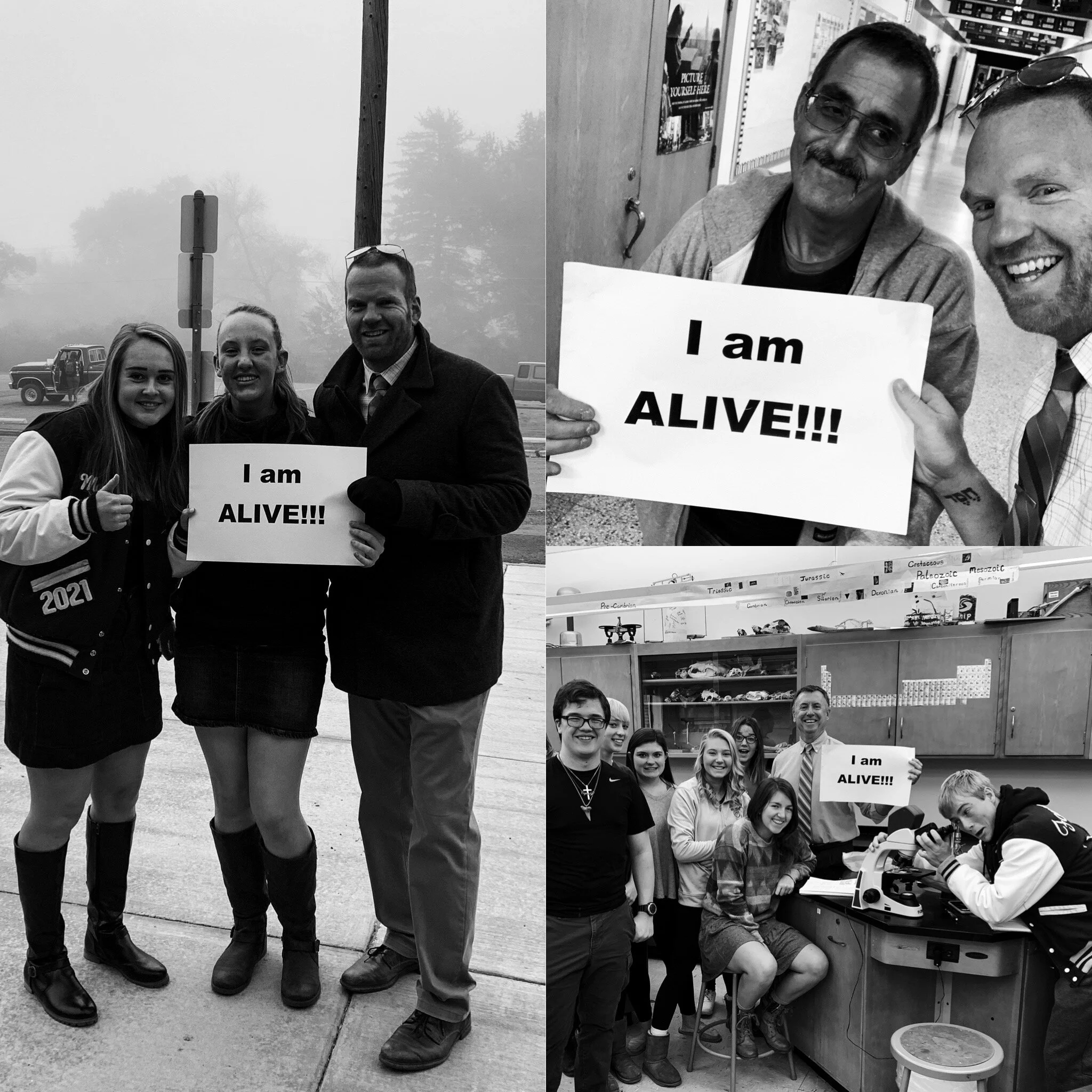I was in my third year of teaching, I think (maybe fourth) when much of my life was far from where I'd hoped it would be and I was beginning to struggle with confidence, joy, and purpose. Unsurprisingly, it began to impact my teaching, my classroom, and my students. Only, I didn’t notice.
Then, I somewhere around Christmas, I received an anonymous email from a student that was written from an anonymous email account informing me that I was not doing a great job, that my teaching was sub-par, and that he (I think it was a he, at least) and his classmates deserved better. Luckily, I received that email on a Friday so I could spend the weekend sulking, arguing, excusing, then finally accepting that he was right. I needed to do better. Because he and they and my colleagues and my family deserved better. And because I was better.
The following week I started writing, "Leave it at the door. be Awesome." on the bottom of every lesson plan. A few weeks in, I made it the footer to my lesson plan template which I have used ever since, reminding me each and every day I sat down to create a lesson to leave whatever struggles, issues, and frustrations I might have at the door and be Awesome.
I wasn't perfect after that, nor did I always leave everything at the door. In fact, every now and then I would gather it all in my arms, squeeze it through the door, then drop it right in the middle of the floor for all my students to see. Like the day I spent sharing memories of my childhood best friend because the night before I had discovered it was the anniversary of passing. He had been gone for almost six years, and I never even knew. We had lost touch over the years, and when I discovered he had passed away six years prior, I felt terrible, guilty, and at a loss.
I didn’t sleep much that night.
So I wrestled through it with my students, I shared some of my favorite memories, talked about how the night before I could only see so much of Ronnie in my son that I ended up holding him for almost an hour while I talked about my childhood friend, and I talked with them about loss and life and the struggle in between. Then I had them share memories of their friends and families and write brief notes to those they mentioned. It wasn't all that academic of a class, but kids referenced it for years as one of their favorite classes and, ever since, I have committed to sharing his story with whomever I can during the month of October, the month he so abruptly left this world.
Sometimes life and circumstances seem more than we can bare. Or, as Bilbo Baggins said, it can make us feeling exhausted and "thin . . . stretched, like butter, spread over too much bread."
In those moments, for me at least, it is healthy to remind myself that I am needed - by my students, my colleagues, my family, and my community. That I am bigger than my circumstances, better than what some might think or say about me, and that I am able to help and serve and do great things, even when I don't feel like it.
People need us. They need us to be great, to be better than we often feel and sometimes think. They need us to be their mothers, fathers, friends, counselors, encouragers, planners, champions, and safe places. They a need us to be Awesome. Which means, sometimes, that they need us to be vulnerable and open and raw. They need us to be human. Which is great! Because that is exactly what humans are. Awesome.
And because we are, we can also be.
Leave it at the door. be Awesome.
For more on . . .
-N- Stuff : Open Thoughts : Friday Thoughts : Ron Hardy










